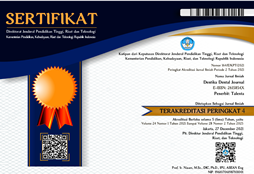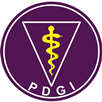SALIVA AS A POTENTIAL DIAGNOSTIC OF BIOMARKER OF ORAL AND SYSTEMIC DISEASES
SALIVA SEBAGAI BIOMARKER POTENSIAL DIAGNOSTIK PENYAKIT RONGGA MULUT DAN SISTEMIK
DOI:
https://doi.org/10.32734/dentika.v19i2.460Keywords:
Saliva, Biomarker, Diagnostic, Oral and Systemic DiseasesAbstract
Saliva is a biological fluid that is secreted by the major, minor and other accessories salivary glands. Saliva has a high potential as an indicator that reflects the health of our body. Saliva also plays an important role as a protector, lubricate oral structure with mucin, set a neutral pH through the buffer capacity, clean the oral cavity, stimulate wound healing, help the taste buds in the taste of food, facilitate the process of chewing food, form a bolus and make it easier swallowing, and minimize food particles through the activity of the enzyme amylase and lipase. The use of saliva as a biomarker in diagnosing provide more advantages than the serum and other body fluids due to using non-invasive techniques, cost-efficient, as well as methods for collecting samples for disease screening without the need to train professional personnel. The benefits derived from the saliva as a biomarker are early detection and screening of disease to the development of caries, periodontal disease, tumors and malignancy, hereditary, wound healing, autoimmune disease, infectious diseases, cardiovascular diseases, drug monitoring, forensic, and the psychological influence. At this time, the function of saliva as a diagnostic biomarker is not widely known, therefore the development of salivary further enhance because it can produce functional similarities with serum and reflect the body's physiological status in the oral cavity and systemic disease.
















